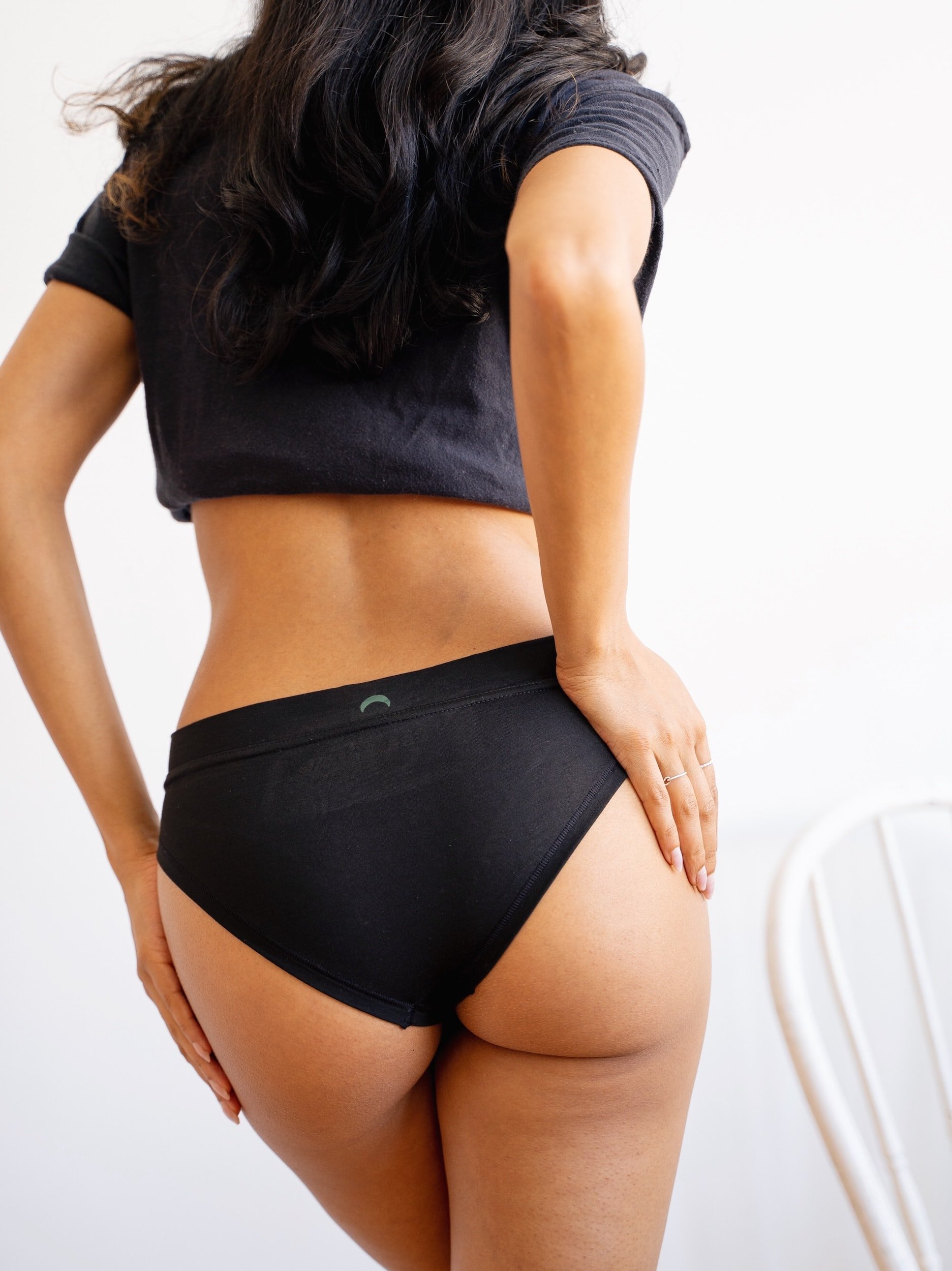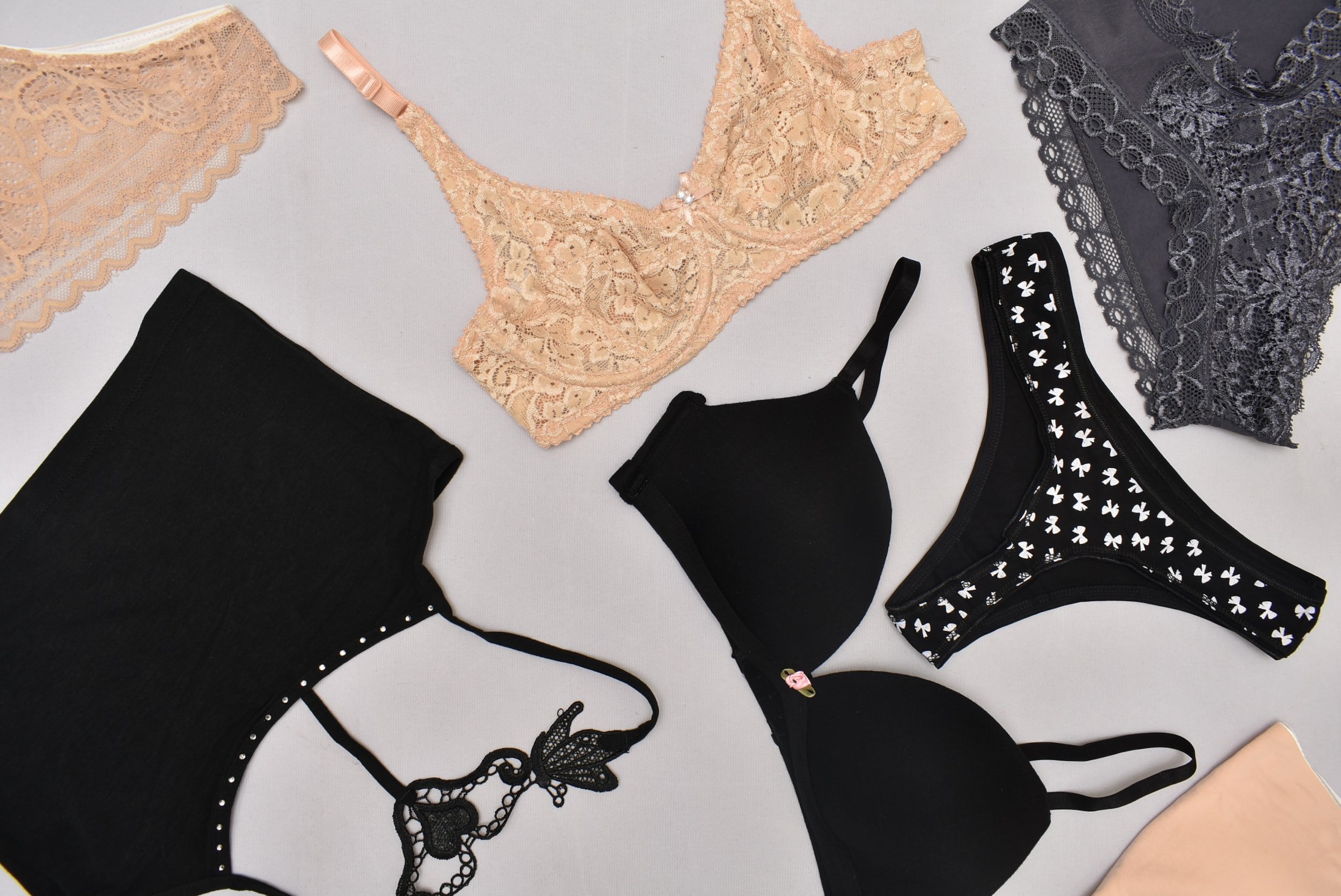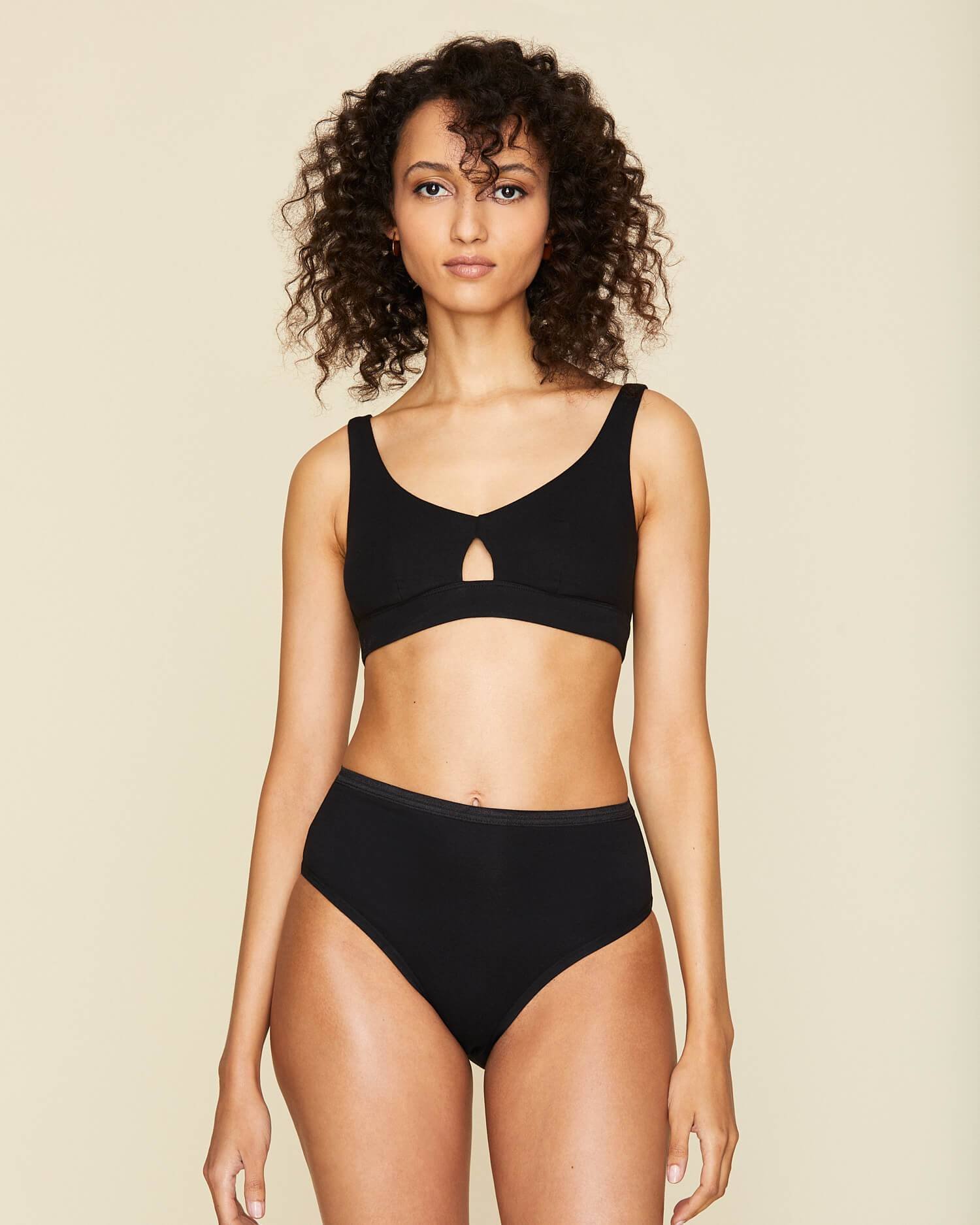The Best Organic Underwear & Bra Brands
When we speak about sustainable fashion and clothing, one of the most preferred options would be thrifting, recycling and reusing.
But, the thought of wearing used underwear, or a bra is not the most sanitary.
A more mindful choice is organic bras and underwear.
The good news is that there are many sustainable brands that use natural dyes and eco-friendly materials, but let's talk about the importance of organic, first.
This post does contain some affiliate links which means The Honest Consumer will receive a commission if you decide to purchase, however, at no additional cost to you!
What does organic and ethical mean when it comes to your undies and bras and why should we care about what's in our underwear drawer?
The first thing you need to know is that organic undergarments are made from organically farmed cotton, bamboo, hemp or other natural fibers, that are grown without the use of harmful pesticides or other toxic chemicals. And, just like organically farmed food, organic fiber crops are better for the environment.
Why Shop Organic Underwear?
These are a few reasons to choose organic fabrics when shopping for underwear!
Prevents Bacterial Growth: Panties made with organic cotton are breathable, which means it prevents the growth of bacteria and yeast infections. It’s reported that synthetic materials can cause an imbalance of yeast and bacteria leading to a yeast infection.
More Comfortable: If you have ever worn organic inner wear, you can instantly feel the difference. Because organic cotton is handpicked, it tends to be softer as it preserves the length of its fiber over machine-picked cotton.
Supports Ethical Companies: Ethical companies go through a lot of effort, all the way from sourcing organic to sustainable logistics and then to equal labor rights. So, when you buy from them, you are able to support your values of ethics and sustainability.
What’s wrong with conventional undies?
Plastic is the key ingredient in the average conventional panties. Anything made with polyester has plastic in it, because polyester is made from polyethene terephthalate, which is essentially PET plastic woven into fabric.
Also, polyester cannot be recycled and is not biodegradable. Elastane is a culprit too. So, your old undies are likely not made with the most sustainable materials.
On top of that non-organic cotton may contain pesticides and other toxic chemicals. Non-organic materials are grown using chemical fertilizers that are applied to crops.
Certain chemicals have been linked to health issues such as hormonal disruption, allergies, and cancer.
What materials can be organically grown?
These are some materials to keep your eyes open for when shopping for new bras or underwear.
Cotton: Organic cotton fiber is made up of natural cotton seeds, rather than processed ones. It is devoid of toxic pesticides, synthetic fertilizers, or genetically modified seeds (GMOs) and it follows organic processes in growing and textile manufacturing processes, which further increases the quality of cotton substantially. It also smells fresh and feels very soft.
Bamboo: Bamboo is a fast-growing, regenerative crop that doesn’t require fertilization and is often touted as a sustainable material when mechanically processed (otherwise known as bamboo linen or bast fiber).
Hemp: Hemp does not require pesticides or fertilizers to grow. It does not exhaust the soil but releases nutrients into the soil. It is mostly used as an alternative to organic cotton as its fabric is non-irritating to the skin. Hemp does not require a certification because it is inherently organic, but if a certain brand claims it, then check if it has 100% hemp mentioned, not just hemp fibers. Hemp softens after every wash, is very durable and has UV-resistant qualities.
Linen: Linen is created from flax fibers, which do not require any fertilizer. Also, flax can be used as crop, oil, or seed due to which there is no waste. Linen is slightly expensive because of its certification.
3rd party certifications to look for
When shopping for new underwear consider looking for these third party certifications.
Fair trade: Fair trade ensures that factory workers are paid livable wages and have safe working conditions.
GOTS: Global Organic Textile Standard (GOTS) is the worldwide leading textile processing standard for organic fibres, including ecological and social criteria, backed up by independent certification of the entire textile supply chain. GOTS certified final products may include fibre products, yarns, fabrics, clothes, home textiles, mattresses, personal hygiene products, as well as food contact textiles and more.
OEKO-TEX: This label certifies that every component of the product, from the fabric to the thread and accessories, has been rigorously tested against a list of up to 350 toxic chemicals.
BCI: The Better Cotton Initiative (BCI) is a holistic approach to sustainable cotton production which covers all three pillars of sustainability: environmental, social and economic.
B Corporation: Certified B Corporations are leaders in the global movement for an inclusive, equitable, and regenerative economy.
The Best Bra & Underwear Made with Organic Fabrics
These organic basics from sustainable underwear brands are all a must-try! Talk about ultimate comfort with these organic bras and organic underwear brands, your body will thank you for this gift.
PACT’s Affordable Organic Fair Trade Underwear
Sizes: XS, S, M L XL, 2X
Price range: $9- $45
PACT’s mission is to build the earth’s favorite clothing company. PACT uses organic cotton, which uses 81% less water than conventional cotton.
PACT has partnered with Fair Trade Certified factories to ensure safe working conditions and fair wages, empower employees, uplift local communities, and promote a sustainable environment.
PACT also offers the option to offset the carbon footprint of your shipment. Their organic cotton panties and bras are great for daily wear, and you can buy them in packs so you have enough for every day of the week!
Types of Undies:
Cheeky hipsters
Thongs
Lace hipster
Lace waist
Boy shorts
Classic fit bikini
Lace-waist thongs
Men’s Boxers
Types of Bras:
Double scoop bra
Modern Racer back bra
Smooth cup bralette
Pretty plunge bra
Soft triangle
I have personally tried PACT’s underwear and bras and do think they are a good budget friendly option.
Boody’s Bamboo Viscose Underwear
Size range:: XS, S, M, L and XL
Price range- $13.95- $45.95
Boody focuses on simple designs, eco-friendly, sustainable bamboo viscose fabric and sustainable manufacturing.
Their basic bra and underwear are simply designed but majorly comfortable. Boody is also a member of 1% for the Planet.
They use organically grown bamboo in their garments that is grown in rainwater with no pesticides and all water used in the
During their production process water is recycled and reused.
Their packaging is made with recycled materials and plant-based inks and non-toxic dyes.
Types of Underwear:
Full-brief
High rise
Mid-brief
Boyleg-brief
G-string
Brazilian Bikin
Hipsters
Men’s boxers
Types of Bras:
self-care crop top
padded shaper bra
Shaper
Cami Bralette
Lyolyte Racerback Bra
Lyolyte angle Bralette
Lyolyte Ribbed High Leg Brief
Personally, I love their wireless bralettes for their comfort and support!
I think Boody’s underwear and bras a great investment because it lasts a really long time. I have bras and underwear that I have had for about four years and they’re still in like new condition.
Knickey’s Organic Cotton Bras & Underwear
Size range: XXS through XXXL
Price range: $17- $48
Knickey was founded by Cayla and Lauren, two supply chain and sustainability pros who put their expertise to improve the first piece of you wear daily: your undies.
Knickey uses certified organic cotton while taking it one step further by keeping their organic fabric free from harmful toxins and using OEKO-TEX approved dyes.
Knickey follows an ethical supply chain. Its organic farm is located in Ahmedabad, organic ginner/spinner in Tamil Nadu, and an organic fair-trade factory in Tamil Nadu.
They use processes to reduce water usage and safely recycle it on their farms and in their factories.
Knickey will offer you a free pair of undies for participating in their recycling program.
Types of Underwear:
Low-Rise Thong
Low-Rise Bikini
Mid-Rise Bikini
Mid-Rise Hipster
Mid-Rise Brief
High-Rise Brief
High-Rise Thong
Organic Cotton Bralettes:
Triangle Keyhole
Keyhole
Scoop
Tank
Sustain by Kat’s undyed organic underwear & Bras
Size Range: XS-XL
Price Range: $36-$68
Sustain by Kat is a small woman owned business that focuses on plant-dyes and natural materials such as organic cotton and linen. Sustainable shoppers can choose from undyed or naturally dyed underwear and bras.
Types of Underwear
Low Rise Panties
High Rise Panties
Types of Bras
Bralette
Sports Bra
WAMA’s Hemp Bras & Underwear
Size range XS-4XL
Price range: $24-$44
WAMA Underwear is an organic hemp underwear brand encouraging consumers to think about the materials that are in contact with their body, specifically undergarments.
WAMA Underwear is made with organically grown hemp from small family farms. The hemp fabric is fabric is dyed in a facility that is Oeko-Tex Certified.
This ensures that the fabric has been tested for harmful substances and that the fabric is therefore is harmless for human health.
I love how their hipsters feel!
Types of Hemp Underwear:
Hipsters
Bikinis
Thongs
Boy Shorts
High
Men's Boxers
Types of Hemp Bras:
triangle bralette
racerback bralette
Hopefully this guide has helped you learn about the importance of choosing underwear made with organic materials and provided some eco-friendly brands to explore!








